Since 2009, the United States Agency for International Development's (USAID) has worked with Rwanda's Ministry of Health to invest in measures to strengthen and sustain Rwanda’s health system through its Integrated Health System Strengthening Project. The $24.8 million project – partially supported by the U.S. President’s Emergency Plan for AIDS Relief – worked to improve access for all Rwandans to quality and efficiently managed health services.
Celebrating Five Years of Stronger Health Systems: USAID's Integrated Health System Strengthening Project
00:15:15
Video Transcript
[USAID Identity]
FRAME TITLE :
Building a System for Better Health
The USAID Funded Integrated Health Systems Strengthening Project
Rwanda 2009- 2014
Narrator:
Rwanda is one of the countries that has shown outstanding development progress in a short period of time. Across the world, the country is hailed for beating the odds, and today Rwanda ranks among the few countries that are on track to meet or even exceed all five health-related Millennium Development Goals.
The last 20 years have been characterized by impressive progress in many sectors, especially the health sector. Notably, health outcome indicators such as child and maternal mortality have been reduced dramatically, and access to quality services has increased as the country is working towards achieving universal health coverage (UHC) for all citizens.
FRAME TITLE : Five Years of the Integrated Health Systems Strengthening Project
The Integrated Health Systems Strengthening Project (IHSSP) is a United States Agency for International Development (USAID) funded project implemented by Management Sciences for Health (MSH) that started in 2009 for a period of 5 years, building on the work initiated in Rwanda by the USAID funded HIV Performance-Based Financing project through its partnership with the Ministry of Health between 2005 and 2009.
IHSSP’s goal was to improve the health of all Rwandans through improved access to quality health services. Over the project's life, IHSSP has contributed to the improvement of Rwanda’s health information management, health financing, human resources for health, quality of care, and has supported the MOH to decentralize health services’ management to the grass roots level
FRAME TITLE : Encouraging Evidence-Based Decision Making
Narrator:
Data are useless if they only sit idle in a computer system. To encourage evidence-based policies and facilitate informed decision-making, IHSSP has played a significant role in supporting a culture of data use. In a bid to achieve this goal, IHSSP trained data managers at all levels on the dynamics of the new web-based R-HMIS and how to analyze their facilities' performance.
Interview of Former National Coordinator for e-Health (Dr. Richard GAKUBA)
I may say in every planning process data is required [and] in every policy decision data is required, it is a cornerstone of every … looking ahead in terms of planning, policies, [in] terms of deciding which intervention to make in different program areas, all that demand lot of data... So the HMIS has contributed a lot in that and I think I am aware that data we have are quite good.
FRAME TITLE: Enhancing Data Use
As part of a national capacity building strategy to roll out the new web-based R-HMIS for staff from all health facilities, the project engaged data managers in group discussions where they analyzed their own data, brainstormed about likely causes of trends, and identified actions that should be taken by their respective facilities to improve health services and outcomes. This has gone a long way to encourage evidence driven decision-making.
Interview of Beneficiaries (Data Managers) Emmanuel Data Manager Mayange Health Center
Let me explain how we use the HMIS: first we collect the data needed from registers, and put them on paper forms. Then we start entering data in the computer. After data entry we can be sure that all data are saved and can be easily analyzed.
Now we are able to keep our data safe and use them correctly. The availability of data helps our leadership to make decisions based on those data. It also helps to improve the quality of services in this Health Center. With this system we use data to identify gaps in the services that we deliver.
When we see a gap through data analyses, we find a solution and we are now improving the quality of care given to our patients.
FRAME TITLE : Rwanda: Towards Universal Health Coverage
Narrator:
In 2004, the Government of Rwanda started the implementation of the Community Based Health Insurance Policy. The policy was revised in 2010 to introduce greater equity into the system. The new policy required the stratification of the population using the UBUDEHE system, through which over 2 million households were assigned to the lowest, middle, or highest economic bracket. To support the Ministry of Health in implementing the new policy, IHSSP, together with other development partners, designed and built a database to house the information. The intensive process took just three months, and by 2012 about 10 million individual records, representing 99 percent of Rwanda’s population, had been recorded.
Interview: of Hon. Minister of Health
As it was, the stratification of the population where more than 80% of the people doesn’t pay taxes, so we don’t know exactly the amount of their revenue. We have decided to go for a traditional way to evaluate the socio-economic status of the people.
Narrator:
In order to promote equity in financial access to health care across socio-economic classes, annual contributions to the CBHI scheme were set according to the 3categories: 2000 Rwandan Francs for the poorest, 3000 for the middle category and 7000 for the highest income category.
Interview: of Hon. Minister of Health
This is very important because we need to provide, in a sustainable way, more care to the people to have a better life than they have now.
FRAME TITLE : CBHI Reduced Financial Barriers to Access to Health Care Services
Narrator:
The stratification process has increased access to health care for the most vulnerable in Rwanda. Inequity among CBHI members has also been reduced, and the contributions of the higher categories are expected to generate increased revenue, which will promote the financial sustainability of the CBHI scheme.
Interview of Health financing (Testimonies)
Man
The Mutuelle (health insurance) benefit that I want to talk about, is that when my wife was going to deliver, we went to the Health Center and from there we were transferred to Nyamata District Hospital. Because I had already paid my wife’s health insurance, I was told that without health insurance I would have paid more than 100,000 RWF ($160). In comparison, she received all the services and care she needed, and I paid only 7,200 RWF (around $10).
Woman
Before I subscribed, when my children and I were sick we used to stay at home because I didn’t have any health insurance. But now when my child feels sick I go to the health center, even if we are transferred to the Nyamata District Hospital I’m comfortable, because now we are insured.
FRAME TITLE : First-Line Medical Care Closer to Every Rwandan
Narrator
The Ministry of Health initiated an ambitious plan to train three individuals as Community health workers in each of the country’s 15,000 villages. Community health workers provide an effective first line of health care and referral. To support the Ministry of Health in ensuring the sustainability of this integral part of the Rwandan health system, IHSSP worked with the Ministry of Health to develop and implement a community performance based financing program to increase access to and use of key maternal and child health services. Through community PBF, financial incentives based on performance are provided to CHW cooperatives, groups of about 100 CHWs. Cooperatives invest approximately 70 percent of their funds in activities such as agriculture, animal husbandry, or real estate, which produce a consistent income stream for their members.
The community PBF scheme has bolstered performance and institutionalized support mechanisms, fostering sustainability and a process for continuous quality improvement.
Interviews related to Health Financing
Clement (Head of a CHW Cooperative)
Our major objective is promoting modern farming of poultry and vegetables so as to reduce malnutrition and other diseases, such as worms in this area.
Our vision is to see that our activities do not stop at cooperative members, we wish other residents to practice modern poultry farming.
Speciose
My name is MUKASAFARI Speciose; I’m a resident of Ruhunde sector. CHWs are very helpful to us, especially people living with HIV, as well as ensuring that our children don’t suffer from malnutrition or other diseases.
FRAME TITLE : Towards Higher Standards of Sustainable Quality of Care
Narrator:
Across the world, accreditation is done to ensure that medical facilities meet basic standards of care and operations. Rwanda is no exception to this process. With a growing need to accredit health facilities in the country, IHSSP initiated and facilitated the nationally-owned accreditation process for Rwanda. The benefit of accreditation is that it is a comprehensive approach to improve quality of health care and focuses on the holistic role of health facilities. Rwanda's accreditation progress had only reached the country’s national referral hospitals in 2009. In 2011, IHSSP supported the ministry to extend this important quality improvement program to provincial hospitals. Rwandan Essential Hospital Accreditation Standards, which now govern all aspects of Rwandan hospital operations, were developed by the Rwandan Ministry of Health with IHSSP project support. At the present time the accreditation process – which includes both assessment and facilitation to achieve standards – is ongoing in five provincial hospitals across the country.
Interview of Quality Improvement and Accreditation
Dr. NKURANGA
When talking about accreditation, it’s a mirror of looking into what you do in relation to what is expected of you. So we did set that target and accreditation was needed to harmonize what we do. In that harmonizing we understand that A is done the right way, B is done the right way and C is not done the right way and what can we do? So it gives us an assessment of how we are performing at the level. Measuring ourselves at the level, national and international standards.
Dr. ZUBERI
The first meeting we talked about accreditation, I said what is this? I know!! It’s always about leadership. I am a Medical Doctor, I don’t really have to waste my time on that. But I was totally, totally wrong.
Dr. NKURANGA
After changing our mind, now we have tools, and tools include policies and procedures. We have operational manuals; we have all the guiding documents where you can refer and say this is how you have to do that. So that has been the good thing, actually what I would say next step now is to try more and try to see how we compare with that but most of write-up has been done and we have resources to refer to.
Resource limitation in term of everything that you need to put for such hospital to meet the international norms and standards. Nonetheless it’s also another learning experience that we were able to realize that actually there is so much we can do without any extra resources in terms of funding. That we can drag to 80% of actually what is necessary to meet the standards without extra resources and probably need 20% for other things I mentioned with infrastructures development. So it has been a learning exercise a little bit, a tough one, it’s tough journey but I would like to say an encouraging journey.
Rob Cunnane, USAID Health Officer Director
USAID has been a strong supporter of this initiative since its inception, and we’re very proud to see the hospitals we’ve been working with through our Integrated Health Systems Strengthening Project be recognized today. And to see the certification of surveyors that will be equipped to continue this work into the future.
FRAME TITLE CONCLUSION : Over the Past Five Years
Narrator:
Every aspect of IHSSP’s work was fully integrated within the Ministry of Health’s existing structures and strategic objectives, and thus will be sustained even after the project ends. Through IHSSP, MSH is proud to be associated with a country that has a great vision to empower its population through the establishment of a robust health system that offers all citizens equitable access to quality health care.
CLOSING CREDITS
The IHSSP team is grateful for the partnership with Ministry of Health, Development Partners and all those who contributed in various ways to achieve with success its objectives.
This product is made possible by the generous support of the US Agency for International Development (USAID) under contract no. GHH-I-00-07-00058-02. The contents are the responsibility of the Integrated Health Systems Strengthening Project and do not necessarily reflect the views of USAID or the US Government.
[USAID Identity]
julio 27, 2017







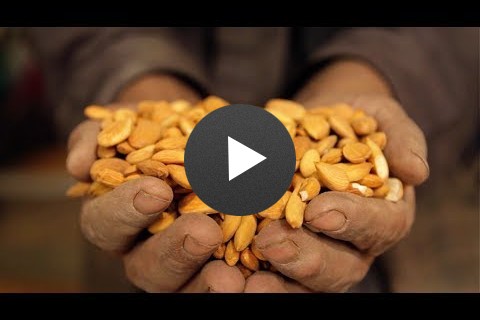
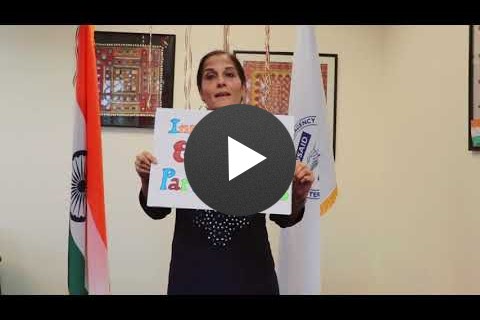
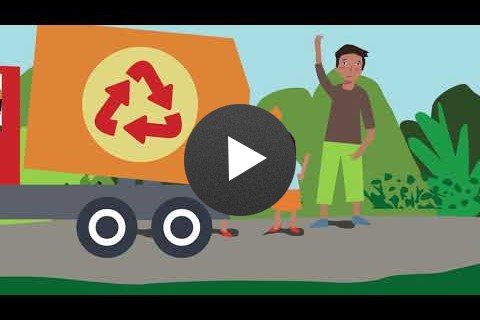
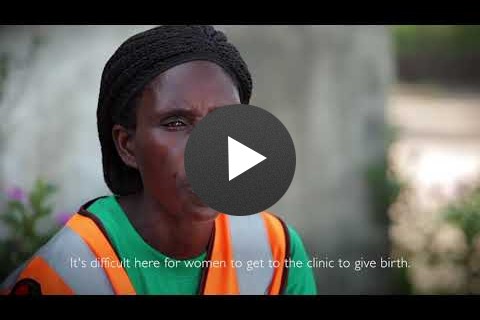
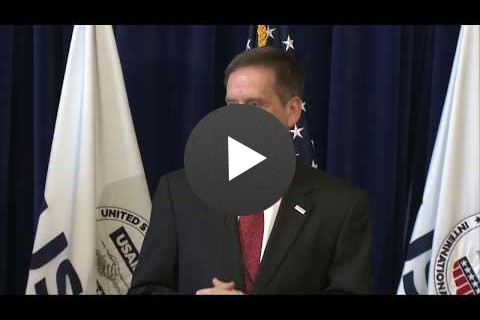
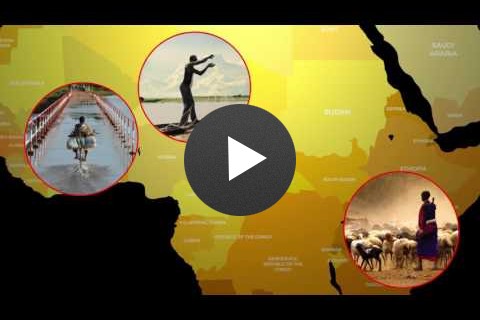
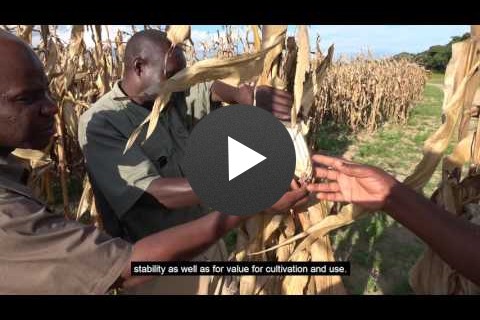
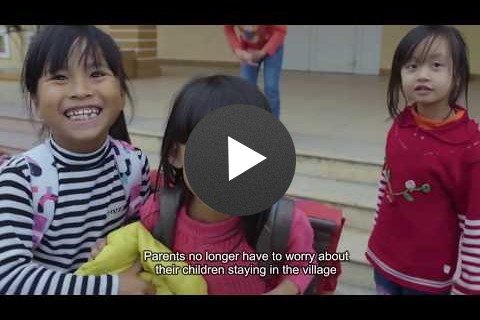
Comment
Make a general inquiry or suggest an improvement.